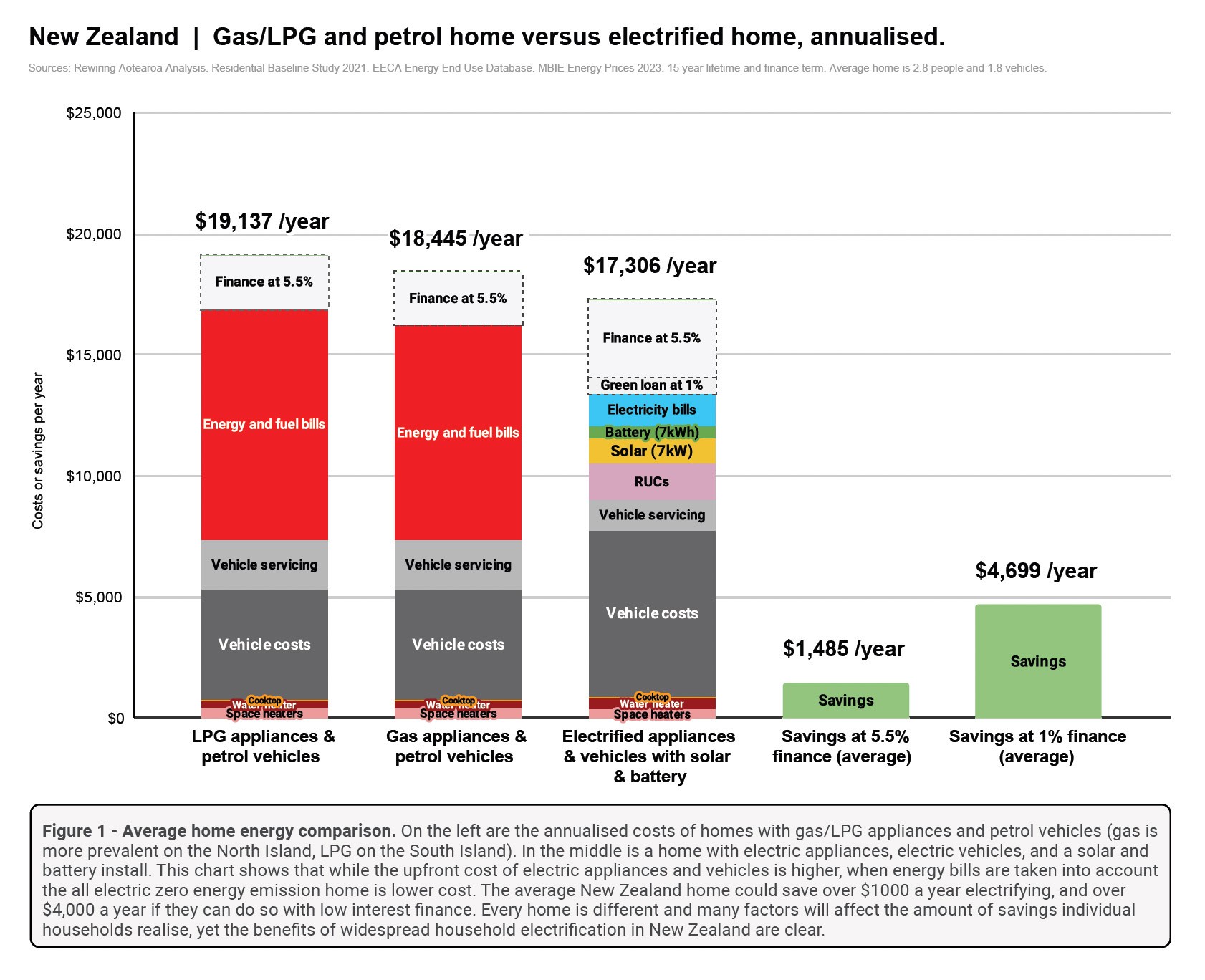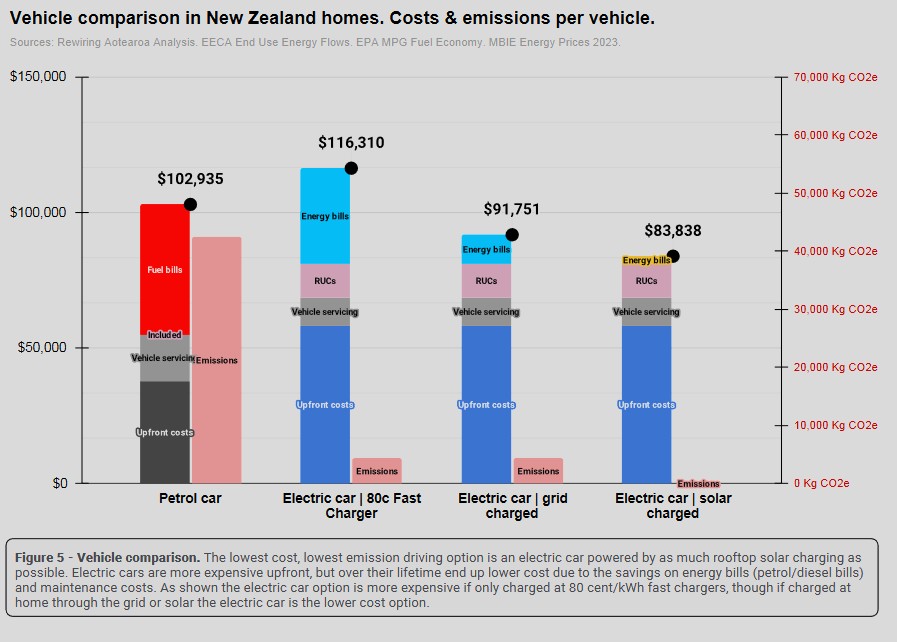An interesting report has recently come out claiming that in NZ electrifying the household has reached a point where it is economically better off than staying with gas + petrol (over a 15 year lifecycle, counting purchasing new appliances/car).
What do people think? Personally we are probably 95% of the way there (lacking household battery and having a PHEV rather than full EV), so little benefit for us. For those who are full on gas (heating, hot water and cooking) plus petrol car, do the number seem to add up?
New Zealand is one of the first countries to reach what’s called the ‘electrification tipping point’, where households can save money and also significantly reduce their emissions by electrifying their appliances and vehicles. On average, homes currently using gas appliances and petrol vehicles could save around $1,500 per year at current interest rates and around $4,500 per year with a low-interest loan if they bought electric equivalents and got their electricity from a combination of rooftop solar, home battery and New Zealand’s already highly renewable grid.
The full report can be found below or from the website: https://www.rewiring.nz/electric-homes-report?downloadreport=1
One of the key images from the report:




